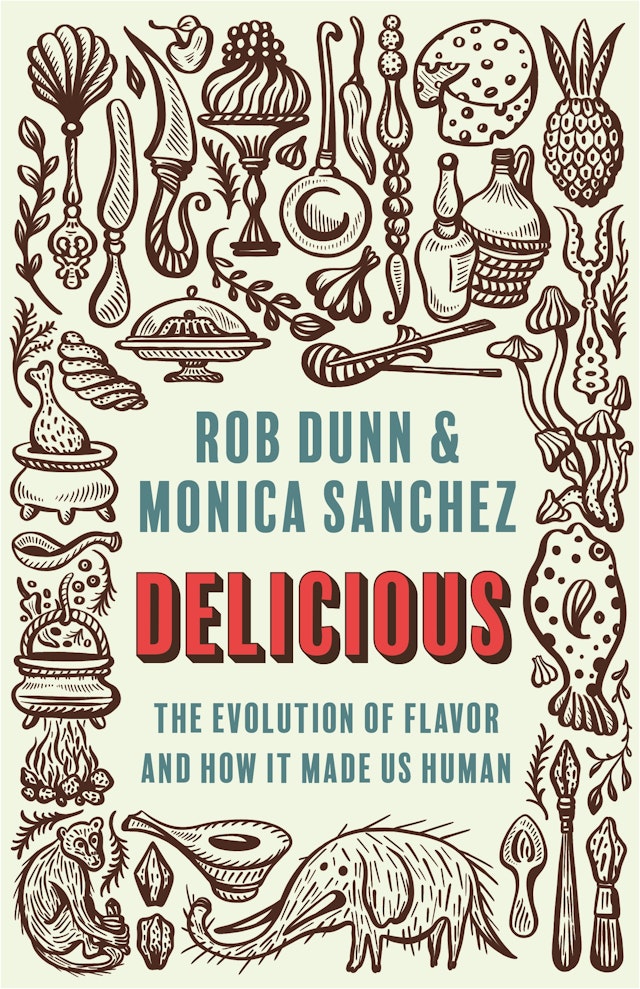
It hinged, say ecologist Rob Dunn and medical anthropologist Monica Sanchez, on the development of control of fire:
Ancient humans who had the ability to smell and desire more complex aromas, and enjoy food and drink with a sour taste, gained evolutionary advantages over their less-discerning rivals, argue the authors of a new book about the part played by flavour in our development…
Cooked food tasted more delicious than uncooked food – and that’s why we opted to continue cooking it, he says: not just because, as academics have argued, cooked roots and meat were easier and safer to digest, and rewarded us with more calories.
Donna Ferguson, “How early humans’ quest for food stoked the flames of evolution” at The Guardian
In their new book, Delicious: The Evolution of Flavor and How It Made Us Human, they provide evidence such as this:
In particular, people who evolved a preference for complex aromas are likely to have developed an evolutionary advantage, because the smell of cooked meat, for example, is much more complex than that of raw meat. “Meat goes from having tens of aromas to having hundreds of different aroma compounds,” said Dunn.
Donna Ferguson, “How early humans’ quest for food stoked the flames of evolution” at The Guardian
The problem journalists always seem to leave hanging when writing about new theories of human evolution is, for example: If early humans weren’t smart already, they would not have learned how to control fire. If they weren’t aesthetically sensitive, they wouldn’t have noticed aesthetic differences in taste. Darwinist theories about the human mind seem to be one long parade of affirming the consequent.
See also: Eating fat, not meat, led to a bigger human-type brain
Earlier discussion of the fat theory.
Starchy food may have aided human brain development
Do big brains matter to human intelligence?
Human evolution: The war of trivial explanations